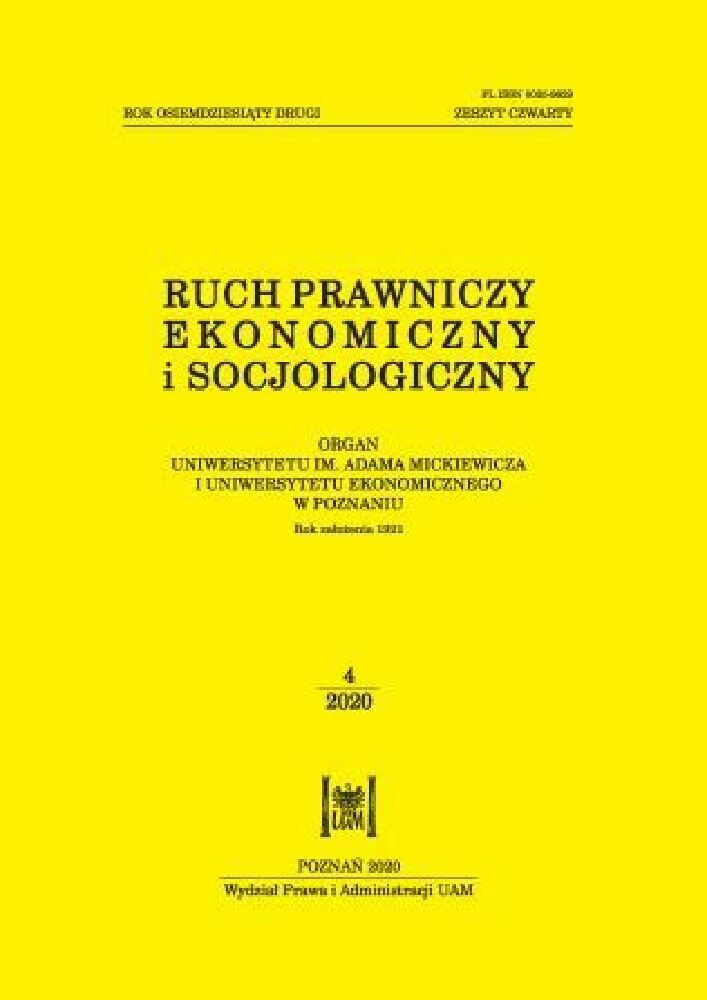Abstract
The paper is an attempt to diagnose the condition of contemporary sociology (its weaknesses, but also its potential strengths) based on an analysis of its language. On this basis, several scenarios concerning the future of sociology are formulated. Two of them (the scenario of the literaturization of sociology and the scenario of its gradual blending with the sciences of complexity) seem to be tantamount to the gradual self-elimination of sociology. Another – the scientization of sociology and its subordination to terminological and methodological regimes much more restrictive than previous ones – appears to be a practically unrealistic scenario, taking into account the history of sociology and its theoretical and methodological pluralism. The last three scenarios mentioned in the paper: the scenario of sociology developing as a sociological theory of complexity par excellence, the scenario of sociology based on existing traces, and the scenario of animation-intervention sociology, mean that it will be forced to undergo radical change, while at the same time seeking to prolong its chances of survival to the greatest extent as a scientific discipline.
References
Bauman, Z. (2014). Rozmowy o socjologii. Warszawa: Wydawnictwo Naukowe PWN.
Berghe, P. van den (2006). Łączenie paradygmatów: biologia i nauki społeczne, [w:] A.L. Jasińska-Kania, L. Nijakowski, J. Szack, M. Ziółkowski (red.), Współczesne teorie socjologiczne. Warszawa: Scholar:
Burawoy, M. (2009). O socjologię publiczna. Przemówienie prezydenckie z 2004 roku, [w:] A. Manterys, J. Mucha (red.), Nowe perspektywy teorii socjologicznej. Kraków: Nomos:
Castellani, B., Hafferty, F.W. (2009). Sociology and Complexity Science: A New Field of Inquiry. Berlin–Heidelgerg: Springer Verlag.
De Landa, M. (2006). A New Philosophy of Society: Assemblage Theory and Social Complexity. London: Continuum.
Drozdowski, R., Szlendak, T. (2013). Socjologia wobec złożoności współczesnego świata, Studia Socjologiczne 4(211): 1–17.
Gorman, M.E. et al. (eds.) (2005). Scientific and Technological Thinking. Psychology Press.
Harkin, J. (2010)., Trendologia. Niezbędny przewodnik po przełomowych ideach. Kraków: Znak.
Jemielniak, D. (2019). Socjologia Internetu.Warszawa: Scholar.
Jemielniak, D. (2018). Socjologia 2.0: o potrzebie łączenia Big Data z etnografią cyfrową, wyzwaniach jakościowej socjologii cyfrowej i systematyzacji pojęć. Studia Socjologiczne 2: 7–29.
Frąckowiak, M., Olszewski, L., Rosińska, M. (red.) (2012). Kolaboratorium. Zmiana i współdziałanie. Poznań: Fundacja SPOT.
Kulczycki, E. (2017). Punktoza jako strategia w grze parametrycznej w Polsce. Nauka i Szkolnictwo Wyższe 49(1): 63–78.
Latour, B. (2010). Splatając na nowo to, co społeczne. Wprowadzenie do teorii aktora-sieci. Kraków: Universitas.
Lutyński, J. (1977). Działania pozorne. Kultura i Społeczeństwo 21(2): 69–78.
Mills, Ch.W. (2007). Wyobraźnia socjologiczna. Tłum. M. Bucholc. Warszawa: Wydawnictwo PWN.
Pierpaolo, D., Archer, M.S. (2015). The Relational Subject. Cambridge: Cambridge University Press.
Pierpaolo, D. (2012). Relational Sociology: A New Paradigm for the Social Science. London: Routledge.
Pietrowicz, K. (2020). Pomiędzy data science a performensem. O niektórych wyzwaniach stojących przed współczesną socjologią Ruch Prawniczy, Ekonomiczny i Socjologiczny 82(4): 335-346.
Schechner, R. (2006). Performatyka. wstęp. Tłum. T. Kubikowski. Wrocław: Ośrodek im. Jerzego Grotowskiego.
Szacki, J. (2007). Socjologia jako Wieża Babel. Studia Socjologiczne 1(184):
Wilson, E. (2002). Konsiliencja. Jedność wiedzy. Poznań: Zysk i S-ka.
Woźniak, Z. (2014). Socjologia kliniczna – interwencyjny wariant praktycznych zastosowań socjologii. Ruch Prawniczy, Ekonomiczny i Socjologiczny 76(4): 333–346.
License
Copyright (c) 2020 WPiA UAM

This work is licensed under a Creative Commons Attribution-NonCommercial-NoDerivatives 4.0 International License.





